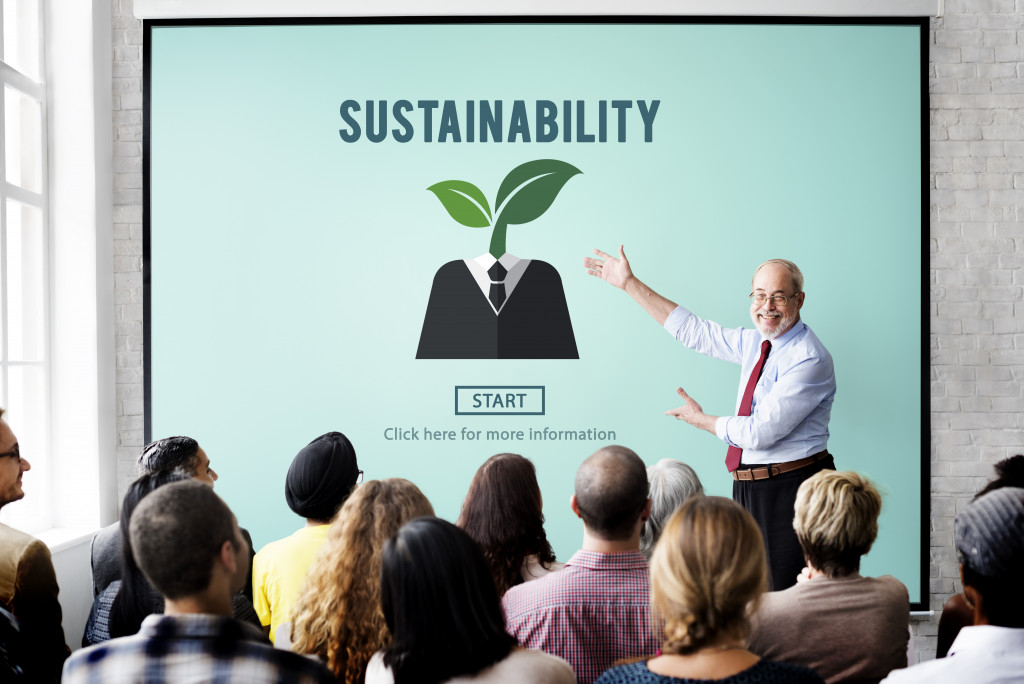It’s no secret how businesses worldwide have contributed so much to the deterioration of our planet Earth. Think of the waste products that have led to the Great Pacific Garbage Patch polluting the ocean. Consider the global carbon emissions produced by large companies polluting the air.
In recent years, sustainability has become such a buzzword in the world of business. Many big companies and even small and medium-sized enterprises (SMEs) are looking to go green in doing business. Their goal is to help protect the environment and save the planet Earth while ensuring the longevity of their business.
That said, here’s how to reduce your environmental impact for your business sustainability:
1. Reduce, reuse, and recycle
Every business must now put emphasis on the three R’s: reduce, reuse, and recycle. If you’re wondering what these entail, take note of the following:
- Reduce: It’s no secret how companies and enterprises are producing so many waste products every year. As a business, find ways and means to cut down on your garbage. Some waste reduction strategies include having a paperless environment, applying 3D printing, and using automation.
- Recycle: It’s impossible to have zero waste products in any given business. Since your company produces wastes almost every day, resorting to recycling can be your best course of action. You can either implement your recycling measures or send your waste products to recycling companies.
- Repurpose: It’s a wise move for businesses to turn their waste products into reused materials. Instead of tossing them into the garbage, think of how you can repurpose these materials. Not only will this help save the environment, but you’ll also cost-cut your material expenses.
2. Ensure energy efficiency
It’s apparent how businesses worldwide have a high energy consumption. As most of these companies and enterprises heavily rely on fossil fuels, they contribute to greenhouse emissions and deplete the planet’s resources. That’s why there has been so much focus on energy efficiency in business.
As a business, consider increasing your energy efficiency. First, invest in energy-efficient systems and equipment pieces. Fret not, as there are now plenty of options readily available in the market. Second, set effective measures on how to conserve energy and reduce its consumption in your business. One perfect example is to insulate your commercial building.
3. Set water conservation in place
Aside from energy control, your business must also focus on water conservation. There are a handful of measures you can implement.
First, educate your employees, clients or customers, and other stakeholders on proper water use or consumption. Make sure to set rules for water conservation. These rules can be as simple as turning off the faucet tightly after use.
In addition, be sure to address water leaks in your office or commercial property. Fix things such as dripping faucets and leaky water boilers as soon as possible.
Lastly, the U.S. Environmental Protection Agency (EPA) has some water conservation recommendations, as follows:
- Installing water-control devices
- Posting educational materials on water conservation
- Regulating water irrigation for the lawn, garden, and outdoor landscape of your business
- Collecting rainfall for irrigation

4. Utilize renewable sources of energy
Companies and enterprises depend so much on non-renewable energy sources for electricity. These include coal, petroleum, natural gas, hydrocarbon gas-liquid, and nuclear energy. However, it’s about time to consider renewable energy sources:
- Solar energy: The power comes from the sun. Think about installing solar panels on your commercial property.
- Geothermal energy: The energy comes from the heat inside the planet. If your business stands near a volcano or earthquake-prone location, consider harnessing this alternative energy source.
- Wind energy: The power comes from the wind. If there’s a wind turbine in your area, take advantage of this.
- Biomass: The energy originates from plants and animals. Consider how you can generate electricity for your business out of biomass.
- Hydropower: The energy gets derived from flowing water. Maybe, it’s about time many companies shift to hydropower for electricity.
5. Earn environmental certification
As a business, you have thought and deliberated with your team about sustainability strategies. One way to have effective tactics is to partner with green agencies. They have environmental experts who can guide you in implementing green practices and investing in green technologies.
In addition, work toward earning environmental management system certification. Be sure to know what the business standards require, as far as environmental protection is concerned. From there, you’ll be able to align your business strategies with these standards. And in time, you’ll get your certification!
Going green in business
It’s time to go green in doing business. Whether a big company or a small enterprise, you have the responsibility to take care of the environment. As such, be sure to consider some of the business sustainability strategies recommended above. With all these in place, you can ultimately protect the 3Ps: your profit, the people, and our planet.



